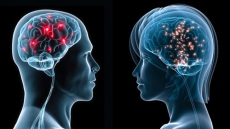Australian researchers have found a six-fold increase in violent behaviour among chronic users of the drug methamphetamine, commonly known as "ice", the Australian National University (ANU) reported Wednesday.
Rebecca McKetin said violent behaviour among ice users was well documented but it had been unclear whether the drug was to blame or if ice users had a predisposition to violence, Xinhua reported.
However, the ANU study she led had found a direct link between use of the drug and violent physical outbursts.
McKetin and her colleagues tracked 278 chronic ice users and found only 10 percent were violent when they were not taking the drug. This increased to 60 percent when they were using ice heavily.
"We found that the drug dramatically increases the risk of violence," she said. "It is clear that this risk is in addition to any pre-existing tendency that the person has toward violence."
"Heavy ice use alters the chemicals in the brain that are responsible for controlling emotions like aggression."
Lifestyle factors associated with heavy methamphetamine use also foster aggressive behavior, she said.
The ANU study comes after the Australian Crime Commission (ACC) reported in late April that seizures of ice were up 300 percent in one year, and that the drug was second only to cannabis in popularity.
ACC acting chief executive Paul Jevtovic said Australia was facing an ice "pandemic", comparing the problem with the crack cocaine crisis in the US in the 1980s and 1990s.
McKetin, who is based at the Centre for Research on Ageing, Health and Wellbeing in the ANU College of Medicine, Biology and Environment, said an estimated 97,000 Australians were dependent on stimulants such as ice.





